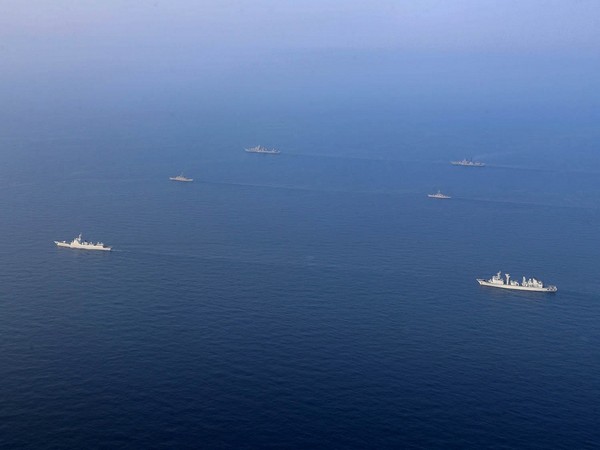Beijing : The ongoing military standoff between Chinese and Philippine vessels in the South China Sea has signaled 'trouble' between the military of the two countries, putting the conflict out in the open, according to CNN.
In the waters near Second Thomas Shoal, which China claims as its territory but where Philippine marines maintain an outpost on a grounded ship, the two nations have engaged in four public showdowns this year.
Analysts characterized by weekend clashes between Chinese and Philippine vessels in the SCS, in which Chinese Coast Guard water cannons disabled a Philippine boat, as the most serious, CNN reported.
Ray Powell, the director of SeaLight, a project at Stanford University's Gordian Knot Center for National Security Innovation that tracks maritime activity in the South China Sea, expressed concern over the "escalating cycle."
The Philippine boats were trying to deliver supplies to the severely damaged ship, the Sierra Madre, when the Chinese Coast Guard attempted to stop them, as reported by CNN.
The National Task Force for the West Philippine Sea said in a statement that a Chinese Coast Guard ship “deployed a water cannon against the Philippine supply vessels causing severe damage to (one's) engines, disabling the vessel and seriously endangering the lives of its crew."
While no injuries were reported during weekend clashes, which also included a collision between Chinese and Philippine vessels, shows that serious injuries or deaths are “certainly possible,” Powell said, according to CNN.
Furthermore, as the Philippines, along with neighboring Japan and South Korea, has a mutual
defence treaty with the US, Filipino deaths may prompt an American military response.
In public statements on the South China Sea, US officials have referred to the pact numerous times. This week, the US State Department rested Washington's position in the wake of Sunday's conflict, CNN reported.
US "stands with our Philippine allies in the face of these dangerous and unlawful actions," the statement said.
However, China's Foreign Ministry informed Washington that "no third party has the right to intervene," Meaning it has no standing in the conflict.
Nearly the entire South China Sea, including some features hundreds of miles from mainland China, is claimed by Beijing as having "indisputable autonomy." Taiwan, Malaysia, Vietnam, Brunei, and the Philippines all have conflicting claims.
